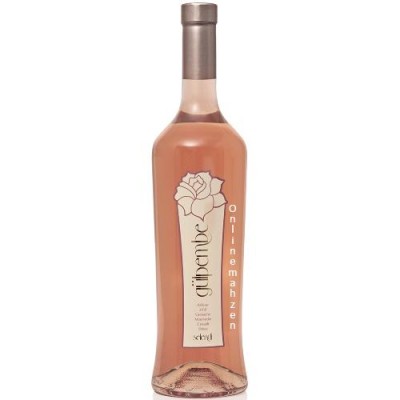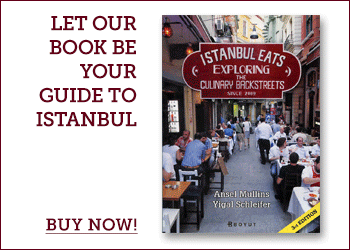Friday
Reviews (Drinks), WineIstanbul Eats Drinks: Selendi Gülpembe Rosé 2010

(Editor’s Note: This post is part of our ongoing “wine talks” with sommelier and oenophile Serdar Kombe. Today he looks at a favorite Turkish rosé.)
1. Before we talk about this specific wine, tell us a bit about rosé in general: When do you drink it? Neither red nor white – is it nothing more than the spork of wines?
Rosé wines are generally sneered at by wine connoisseurs, but many people find their crispness and lightness very refreshing in hot weather, leading to them being often referred to as summer wines. Styles vary widely, but in general, a rosé wine is much simpler than a true heavyweight white or red wine – even if made from the same grapes. European rosé wines are generally dry, while those from the United States tend to be sweeter. Sometimes, this distinction is highlighted by referring to sweet rosé wines as “blush” wines.
Rosé wines are actually some of the most versatile, food-friendly wines around. They have had an image problem to overcome, since many consumers mistake rosé wines to be overly sweet and in the category of “starter wines.”
2. Is Turkey is a good place to make rosé? What grapes are usually used to make rosé in Turkey?
Actually, Turkey has a lot of rosé potential in terms of the grapes grown here. Almost all of the best known rosé making grapes are grown in Turkey, plus we have own traditional grape varietals such as Kalecik Karası, Çalkarası and others.
On the other hand, we are really only beginning to make good rosé wine in Turkey. Skill- and technique-wise we are still quite weak! Turkish wine producers need to look around more in order to make world-class rosé. Based on what I observed so far, they don’t have a passion for making good rosé wine!
3. In that case, what can you tell us about the Selendi Gülpembe rosé? What caught your attention about this wine?
When I first tasted this wine, I felt as if it could have come from the famous Provence region of France. The wine was lively, had nice acidity and an almost orange color – it was amazing. And the 2010 release is even better quality than the 2009.
4. What can you tell us about the Selendi winery?
This winery belongs to Akın Öngör, who used to work as the general manager of Garanti, one of Turkey’s largest banks. He is big-time wine lover and this winery is a retirement project of his. We should also consider the influence of the real boss of this winery, Gülin Öngör, who is Mr. Akın’s wife. They are among the kindest, loveliest and most modest couples I have ever met.
5. What would you pair this wine with?
Provençal food and dishes work very well with this lovely rosé wine. I would especially recommend meze plates that have medium acidity (tomato ezme, grilled eggplant in tomato sauce, shepherd’s salad, etc.). Mozarella-style cheeses might be good pairing with it. Olive oil-based mezes could be a wonderful match as well. If you want to drink it with meat, kuzu külbastı (lamb tenderloin) could be an alternative. But I wouldn’t eat oily or fatty dishes with it.
6. Tasting notes?
Color somewhere between orange and pink. On the nose, strawberry and cherry aromas are screaming, with citrus aromas coming from behind. On the palate we taste a good combination of acidity, fruitiness and crispness.
It is the finest Turkish rosé wine I have ever tasted.
(Note: This wine can be bought for around 35 TL.)
Related Posts
Post Tags: Istanbul Eats, Istanbul restaurants, Turkish wine







